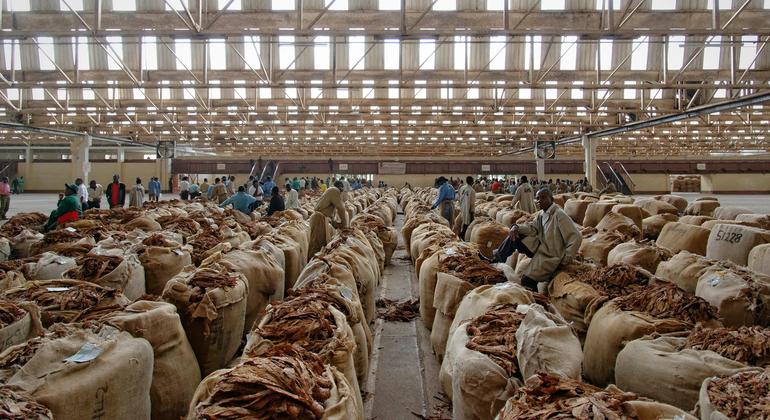Stop growing tobacco, grow food instead, says WHO

Ahead of World No Tobacco Day on Thursday, May 31, the WHO warned that 3.2 million hectares of fertile land across 124 countries are being used to grow tobacco – even in places where people are starving.
WHO Director-General Tedros Adhanom Ghebreyesus said governments around the world “spend millions supporting tobacco farms”, and that choosing to grow food instead of tobacco would allow the world to “prioritize health, preserve ecosystems, and strengthen food security for all”.
Disaster for food, environment protection
The latest report of the agency, “Grow food, not tobacco”, recalls that a record 349 million people are facing acute food insecurity, many of them in 30 countries in Africa, where Tobacco cultivation has increased by 15 percent in the last decade.
According to the WHO, nine out of ten of the largest producers of tobacco are low and middle income countries. Tobacco cultivation compound these countries’ food security challenges by building a dry land. The environment and the communities that depend on it also suffer, as the expansion of the crop causes deforestation, pollution of water resources and soil degradation.
Vicious child of dependence
The report also exposes the tobacco industry call for farmers is a vicious cycle of dependence and exaggerating the economic benefits of tobacco as a cash crop.
Speaking to the media in Geneva on Friday, Dr. Rüdiger Krech, WHO Director for Health Promotion, warned that Tobacco’s economic importance is “a problem we need to eliminate urgently”.
He said the crop accounts for less than 1 percent of the gross domestic product (GDP) in many tobacco-growing countries, and that the profits go to the world’s largest tobacco producers, while the Farmers are struggling under the burden of tobacco debt. companies.
‘Smokers, think twice’
Dr. Krech also explained that tobacco farmers expose themselves to nicotine poisoning and dangerous antibiotics. The broader impact on communities and entire societies is devastating, as some say 1.3 million workers are estimated to work on tobacco farms instead of going to school, he said.
“The message to smokers is, think twice”, said Dr. Krech, as smoking has come down to support the unjust situation that farmers and their families are suffering.
Workers at a tobacco factory in Malawi fill machines with charcoal. (file)
Breaking the children
WHO, along with the UN’s Food and Agriculture Organization (FAO) and the World Food Program (WFP) have joined forces around the Tobacco Free Farms initiative, to helping thousands of farmers in countries like Kenya and Zambia to grow sustainable food crops instead of tobacco.
The programs provide farmers with microcredit lending to pay off their debts with tobacco companies, and knowledge and training to grow other crops, and market for their harvest, thanks to WFP’s local procurement initiatives.
Dr. Krech said the program is “proof of concept” of the power of the UN program to enable farmers to break away from dangerous tobacco cultivation. He outlined ambitious plans to expand the program, as countries in Asia and South America are already requesting support.
“We can help all the farmers in the world to get out of tobacco farming if they want,” he said.







